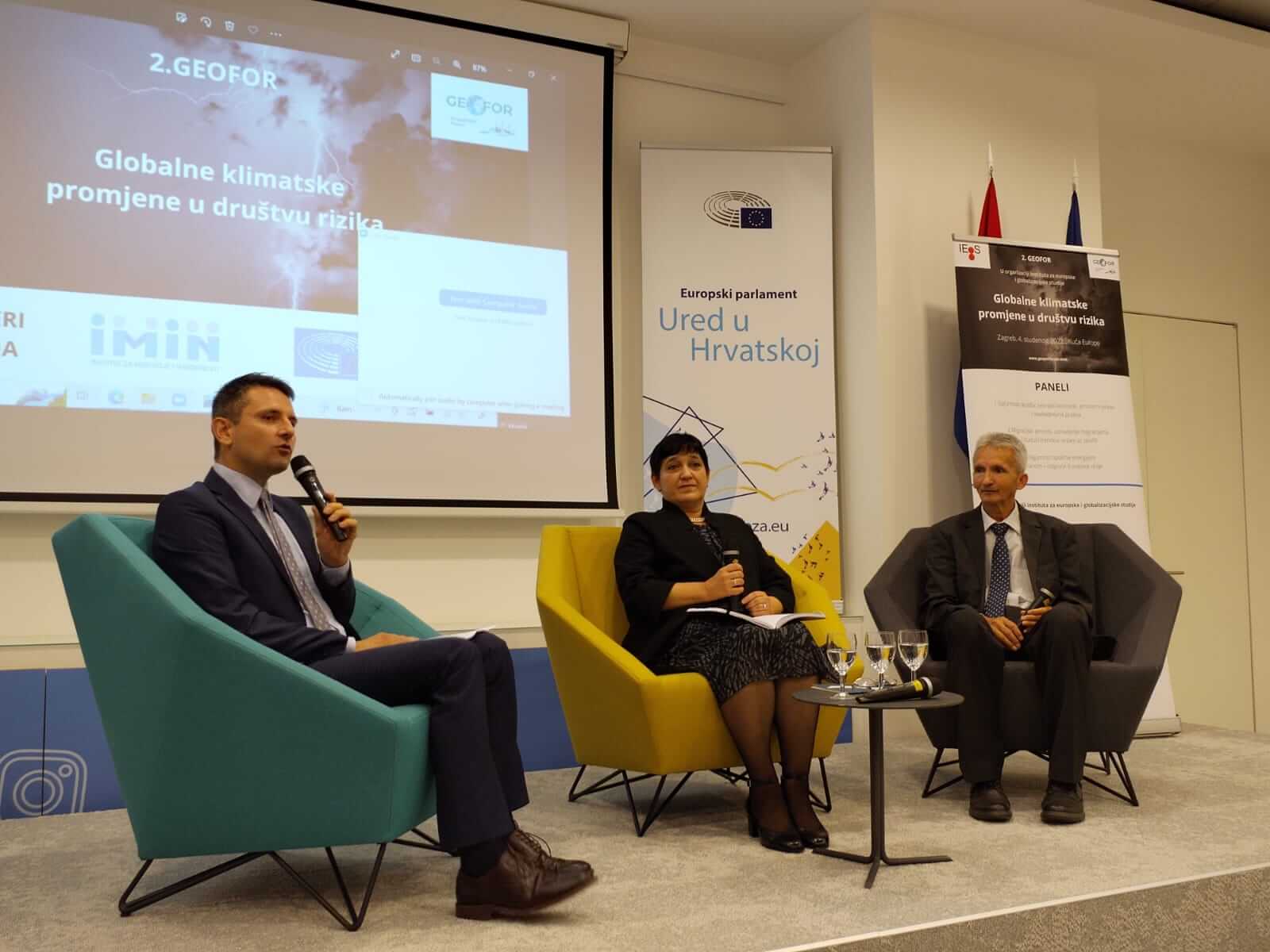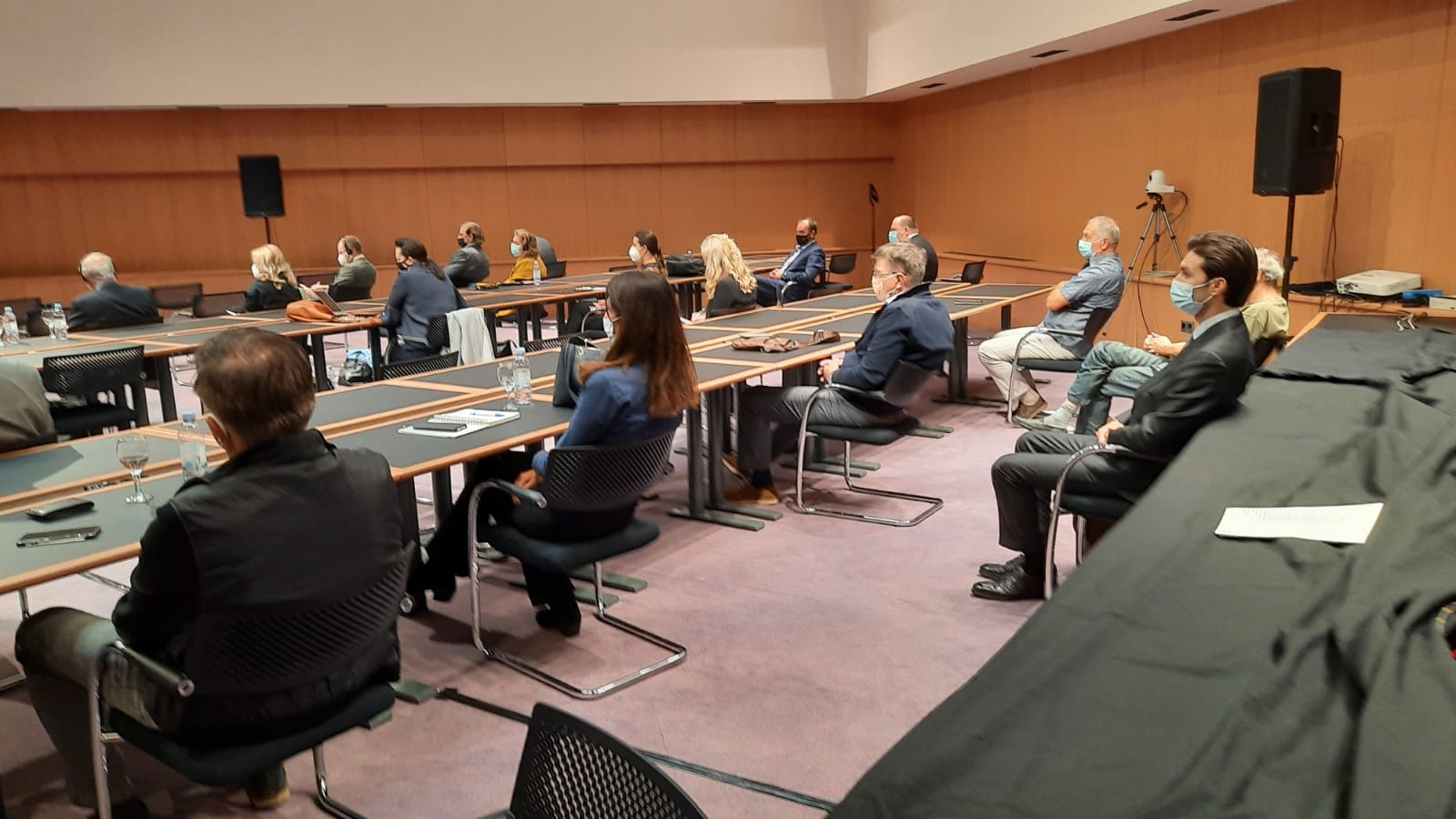Third geostrategic forum - GEOFOR
The war in Ukraine and the refugee crisis in Europe
War for territory, food, energy and population
Zagreb, 17 November 2023, House Europe
Organized by the Institute for European and Globalization Studies, digital think tank
ORGANIZER
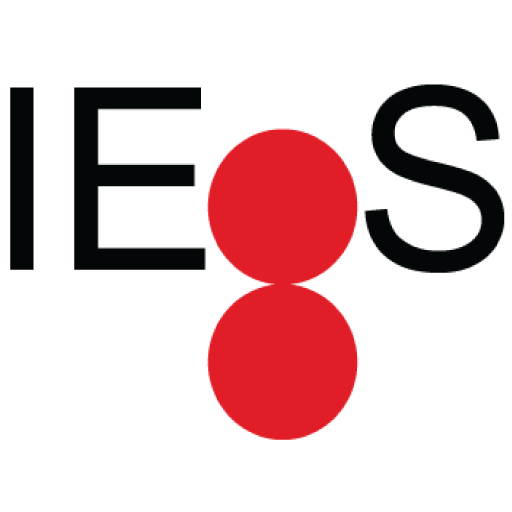
The Institute for European and globalization studies
PARTNERS
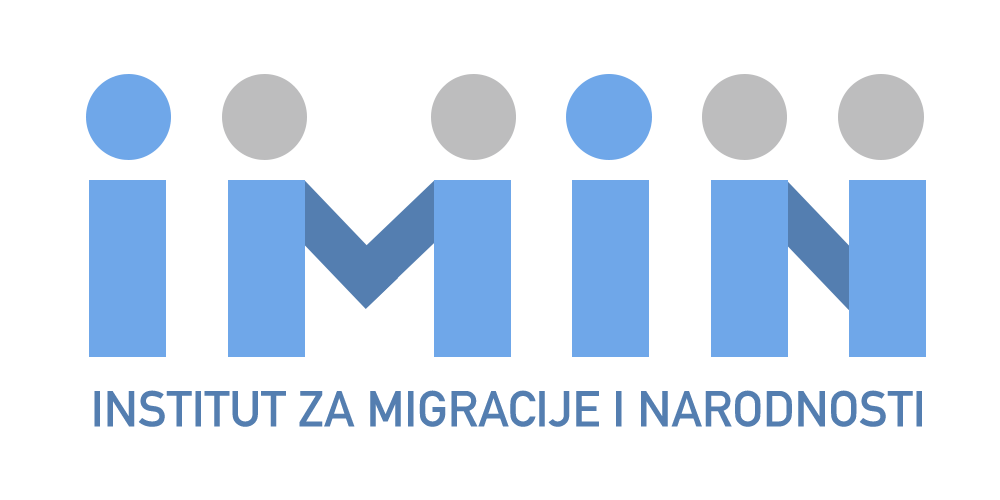

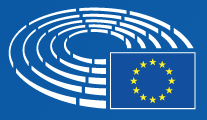
GEOFOR 2023
Forum's definition, concepts and goals
Definition
The Geostrategic Forum was established in Zagreb in 2020 with the aim of analyzing and conceptualizing the results of the Mediterranean Agricultural Forum, the ICT Society Forum, and the International Energy Forum in the context of geopolitics, thus articulating the exposed public policies in the context of the new social paradigm in the global risk society.
The Geostrategic Forum is based on the present results of IEGS.
Concept
The Geostrategic Forum has as its basic assumption the fact that the reconstruction of the old geopolitical framework of the world is underway, and consequently that there is an attempt to establish a new one.
Within the new geopolitical framework of the world, at the beginning of the 21st century, there will be a new / different positioning of the EU in relation to the USA, China and Russia. In this context, the Geostrategic Forum is a place for discussions and analyses of the new concept of multipolarity in the world.
Within the new geopolitical framework of the world, the focus is on population, food, energy and ICT technology, and climate change in the context of a global risk society.
Goals
Promoting the importance of geostrategy / geopolitics in the context of the new social paradigm, both within the academic sector and in the general public, with a special emphasis on the public sector.
The Forum provides clear and articulated concepts and solutions to problems related to public policies of IT, energy, and Mediterranean agriculture, both locally and regionally and internationally.
The Geostrategic Forum is based on the premise of identifying key issues and providing a framework for politically independent discussions on public policies, strategic and security trends in 21st century geopolitics determined by various risks.
Synthesizing and analyzing public policy proposals of other forums from the position of geopolitics.
The first years, and now we can even say decades, of the 21st century showed us how geopolitics is experiencing a great return to our reality. After the unipolar comma of the first years after the fall of the Berlin Wall, the events of this century were lined up one after the other as catalysts and hints of a change in the geopolitical epoch and order in which we live. We experienced the peak of these changes in the events of the COVID-19 pandemic and Russian aggression against Ukraine. With this, for the umpteenth time, we have received confirmation that the social and reality paradigm has changed and that we are in a society of (permanent) risks.
From the above, we can conclude that knowing, interpreting and proactively acting on geopolitical processes is the foundation, but also the pinnacle of insight into reality. Especially it should be so from the perspective of those in positions of power. Because, as Émile de Girardin says, "To rule is to foresee, and to foresee nothing is to rush into ruin."
The geopolitics of the present moment shows us again, paraphrasing Winston Churchill, how we see it further into the future, the further we look into the past. We are victims, in Nietzschean terms, of the eternal return of the same, a return to the geopolitics of the 19th century, in which large national states, this time gathered around major civilizational-spatial axes, fight for their spheres of interest. It is precisely for this reason that geopolitics is imposed as the key to understanding processes that do not only take place here and now, but have their own historical course, and are transhistorical.
With this in mind, the third edition of the geopolitical forum will deal with the current issues of the Ukrainian conflict, its causes and consequences, and will try to provide an interpretive framework that will serve not only for understanding, but also for acting on the issue of current geopolitical forces and their consequences.
Panels
The first panel of the 3rd Geofor starts from the assumption that any discussion about the causes and history of the Ukrainian conflict must start from the acceptance of the fact that the Ukrainian conflict did not begin on February 24th, 2022. The genesis of that conflict has its stages that led to the current state.
Bearing this in mind, the discussions on this panel will go in the direction of interpreting the Russian aggression against Ukraine as a conflict through which Russian geopolitics wants to turn Ukraine into a key part of its "new Russian empire". In this geopolitical project, Ukraine is at the same time a buffer zone towards the West, but also the deepest part of "Russian" land in Europe and serves as a projection of imperial power.
Also, considering the emerging multipolarity, the panel will try to give a threefold view of Ukraine and this conflict; the view from Washington, Brussels and Moscow, since, starting from the perspective of realpolitik, minimal mutual respect of all three views on the conflict is necessary for its end.
On the other hand, starting from the clear assumption that Russian aggression against Ukraine is a war for territory, food, energy and population, one of the most important issues of this conflict, but also more broadly, in the European framework, will be highlighted, which is the issue of migration and demography. What can be concluded from the different way in which Middle Eastern migrants were welcomed in 2015 and Ukrainian refugees in 2022? Is the influx of the Ukrainian population an implicit solution to Europe's demographic problem? What is the future of Russian demographic trends?
The problems related to this conflict will also be viewed from the angle of the economic and energy crisis in which Europe finds itself; many Europeans do not see the Ukrainian conflict as "their war" and are not ready to provide long-term assistance, at the expense of their standards. This attitude is a potential European social bomb.
The Russian aggression against Ukraine by its nature and consequences is an event that can be considered paradigmatic in the context of international relations, almost like the Covid-19 pandemic.
The question that is already being asked is what the security architecture of the world will look like after the war, the end of which, admittedly, is still not in sight. The Russian onslaught and the collapse of the security order created after the Second World War and the fall of the Berlin Wall implies that there can be no vacuum, one international order must be replaced by another.
Will the "collective West" try to stick to the idea that this order, which ensured its almost indisputable hegemony, has not been violated, and will, guided by its principles, after the resolution of the Russian-Ukrainian conflict try to act on the Asia-Pacific region with the same or a similar approach? area, i.e., try to contain China.
How will it position itself towards other, indirect actors of this, nevertheless, to a large extent, global conflict?
How can we expect other major geopolitical players to position themselves according to the possible future architecture of the world, if the West once again starts thinking that it alone has the right to dictate the rules? Appetites are growing and yesterday’s small players have their own ambitions and feel that they should have a say; South American countries, especially Brazil, African countries, India, Turkey, Egypt, Iran, Saudi Arabia are just some of the geopolitical actors who have either already taken sides in this conflict or are waiting for the outcome to see where and how they can best achieve their national interests.
What is the role of the EU in all of this in terms of economy, energy, security in general, but above all in the political sense. What is the importance of the EU as a geopolitical factor, has the EU ever been one, can it and does it want to become one, and how can the role and of the EU in the Ukrainian conflict be evaluated.
What is the role of Croatia in this whole rearrangement, and does it even know what its role is? What are the security risks Croatia faces and will face and is the country even prepared for them?
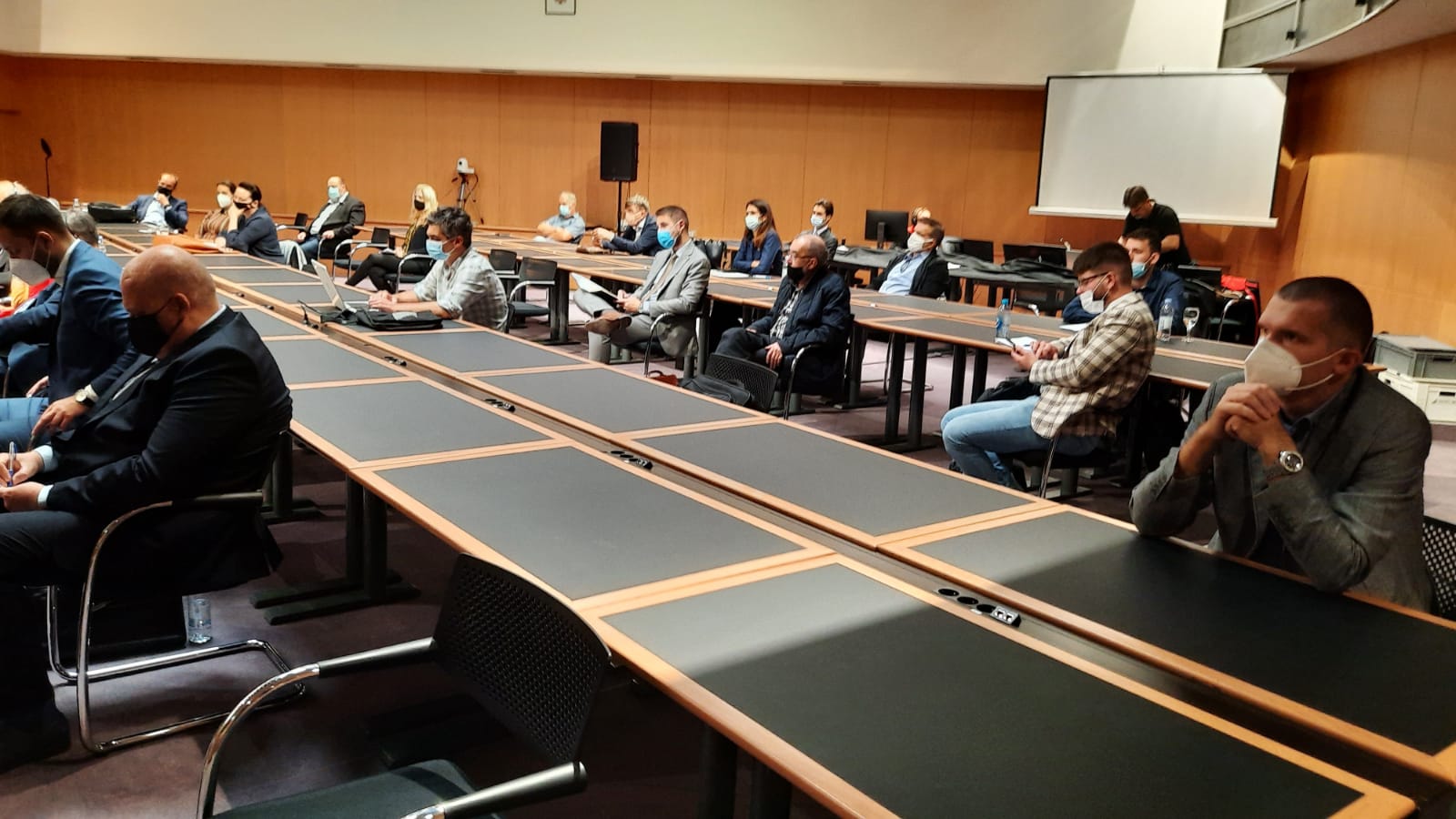

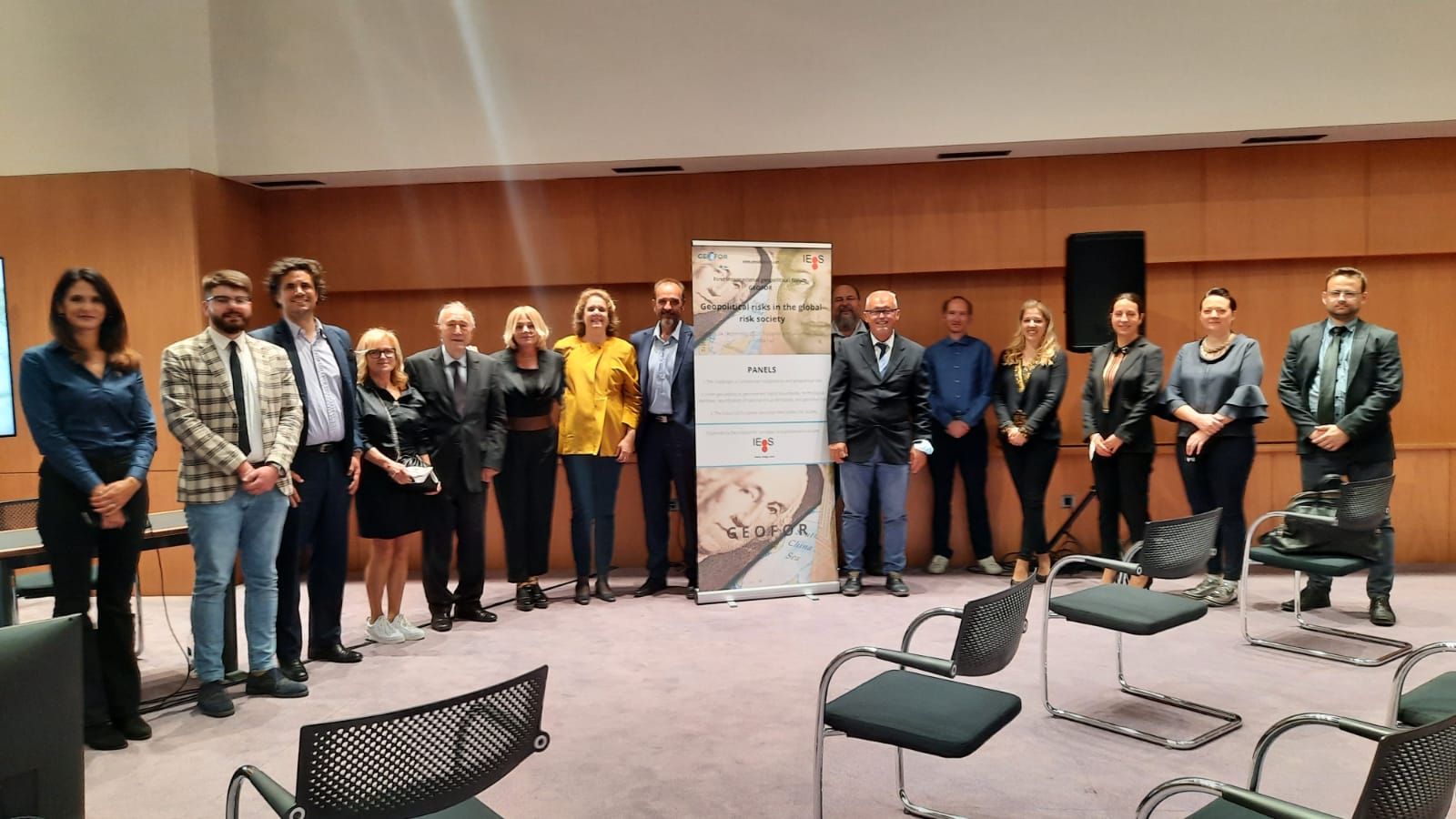
Forum's director foreword

The Ukrainian conflict, i.e. the Russian aggression against Ukraine, is an event of epochal importance. Its fragility stems not only from shock and astonishment over a new war on European soil, but above all from the fact that it is a concrete, painfully tangible manifestation of a change in the geopolitical paradigm and order.
This change is particularly painful and sobering for Europe and the European Union. If we freely define geopolitics and understand it as a projection of the understanding of the necessity of one’s own identity in historical time and space in combination with current circumstances and historical constants, we see that Europe unfortunately has nothing to do there.
After the Second World War, Europe consciously gave up its role as an actor in historical processes, and transferred this concern to the USA. The process of European integration and the passage of time took their toll and Europe ceased to be capable of historical thinking; some things, including a war on European soil, became unthinkable. Externally protected by the security umbrella of the USA, and internally intertwined by integration processes, Europe did not notice the emergence of a new geopolitical paradigm, the rise of historical nation-states/civilizations that, having taken root, reconciled and accepted their past, all its lights and shadows – something that Europe never did – embarked on a new historical course that is most plastically reflected in revived claims to new-old territories, resources and people.
The focal point of the concrete manifestation of all of the above is February 24, 2022, the emblematic date of the paradigmatic geopolitical turn.
Observing the phenomenon as evidence of the new social paradigm and the risk society in which we live, we hope for three aspects of the current situation that can be formulated as three questions:
1) Why did all this happen?
2) What about the people, the victims of that conflict?
3) If it happened in Ukraine, can it happen again elsewhere? Could it happen to us?
The third edition of GEOFOR will give answers to these questions, in the never more suitable environment of the House of Europe.

The Ukrainian conflict, i.e. the Russian aggression against Ukraine, is an event of epochal importance. Its fragility stems not only from shock and astonishment over a new war on European soil, but above all from the fact that it is a concrete, painfully tangible manifestation of a change in the geopolitical paradigm and order.
This change is particularly painful and sobering for Europe and the European Union. If we freely define geopolitics and understand it as a projection of the understanding of the necessity of one’s own identity in historical time and space in combination with current circumstances and historical constants, we see that Europe unfortunately has nothing to do there.
After the Second World War, Europe consciously gave up its role as an actor in historical processes and transferred this concern to the USA. The process of European integration and the passage of time took their toll and Europe ceased to be capable of historical thinking; some things, including a war on European soil, became unthinkable. Externally protected by the security umbrella of the USA, and internally intertwined by integration processes, Europe did not notice the emergence of a new geopolitical paradigm, the rise of historical nation-states/civilizations that, having taken root, reconciled and accepted their past, all its lights and shadows – something that Europe never did – embarked on a new historical course that is most plastically reflected in revived claims to new-old territories, resources and people.
The focal point of the concrete manifestation of all of the above is February 24, 2022, the emblematic date of the paradigmatic geopolitical turn.
Observing the phenomenon as evidence of the new social paradigm and the risk society in which we live, we hope for three aspects of the current situation that can be formulated as three questions:
1) Why did all this happen?
2) What about the people, the victims of that conflict?
3) If it happened in Ukraine, can it happen again elsewhere? Could it happen to us?
The third edition of GEOFOR will give answers to these questions, in the never more suitable environment of the House of Europe.
